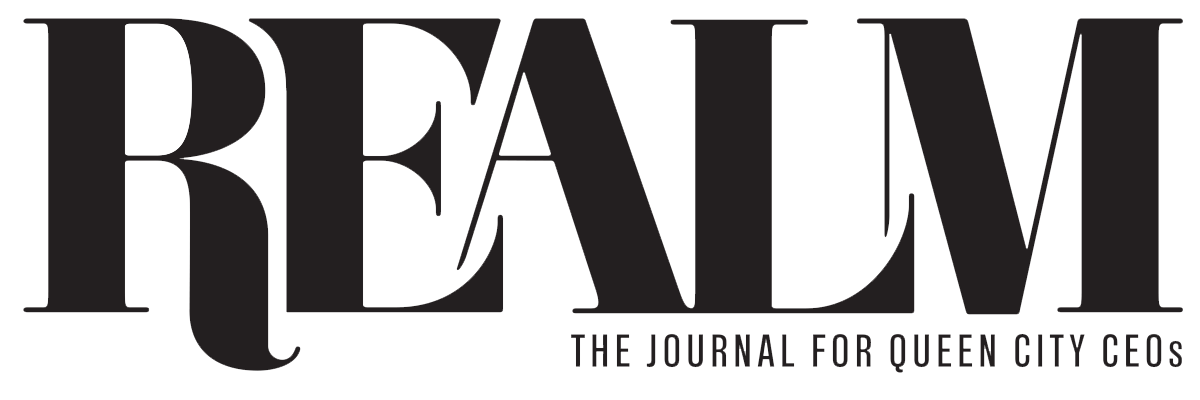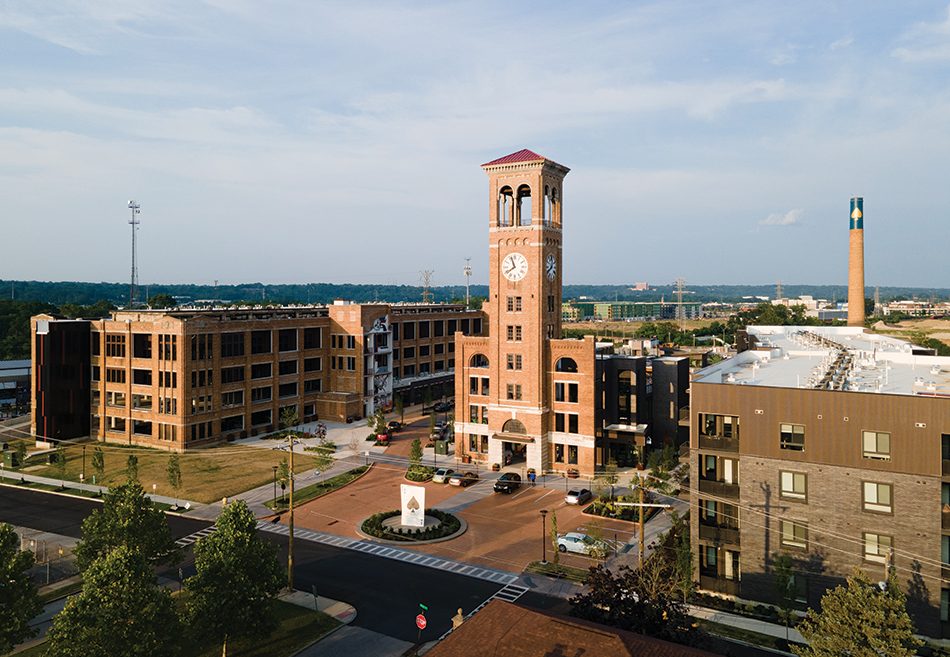When the United States Playing Card Company built its Norwood factory in 1900, it was the world’s most prolific playing card printer and a vital cog in the small city’s factory-filled, immigrant-heavy ecosystem. Many modern-day Norwoodians still claim roots back to those early-city beginnings—which is why, when it came time to breathe new life into the defunct factory’s dusty spaces, builder PLK Communities knew local buy-in would be key.
A 400-resident survey in 2020 showed a resounding desire for public gathering space and preservation of the property’s iconic clocktower. Unlike many of Cincinnati’s neighborhoods, “Norwood has never had a public square,” says Nick Lingenfelter, vice president of PLK Communities. With Phase 1 nearing completion this summer, Factory 52 is already delivering on that desire.
To tackle the challenge of limited liquor licenses for Norwood’s 19,000-person population, PLK brought in two breweries—Hi-Wire Brewing from Asheville, North Carolina, and Cincinnati-based Fretboard Brewing Company—to locate at each end of the property to create a mini brewery district. Hi-Wire opened in March, with Fretboard and Jeni’s Splendid Ice Cream projected to open this summer.
The Gatherall, a 14-stall food hall, will open its first handful of eateries this summer as well, with others launching in the following months. The new Aces Pickleball + Kitchen helps “activate” the property, says Lingenfelter, offering five indoor courts and six illuminated outdoor courts for leagues, memberships, and public court reservations.
Factory 52 retail spaces will be boutique in nature: a high-end used watch retailer, a locally owned salon/spa, a clothing and accessories shop, a spin studio, and other shops with a likeminded ethos. More than 1,100 parking spaces provide visitor accessibility but with an urban touch. “When you look at our property, you’re not going to notice the parking first,” says Lingenfelter. “It’s scattered throughout, like in any other city.”
At completion, Factory 52 will host up to 600 housing units across three residential buildings—two newly constructed buildings, which are 93 percent and 100 percent leased as of this printing, plus the converted factory building boasting quintessential high-ceiling lofts.
“It’s the fastest-leasing project I’ve seen in 19 years,” says Lingenfelter. The anticipated market of predominately young professionals and empty-nesters have options from 400-square-foot studios to three-bedroom apartments, with a dog park and residents-only pool as added perks.

Along with all the new, plenty of old has also been preserved. Ninety percent of the site’s original materials were upcycled. Salvaged timber was reused in flooring, and 700,000 bricks were repurposed and redistributed nationally. Even the Factory 52 logo, a clock face inside a playing card spade symbol, nods to the site’s storied past.
Equally notable is the anticipation of the development’s ripple effect. By injecting new energy and fresh visitors into this corner of Norwood, Lingenfelter has high hopes of reinvigorating the city’s existing commercial landscape. “We want to be that catalyst to keep growing the community,” he says.


